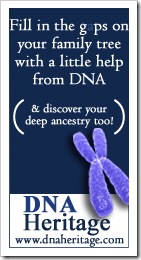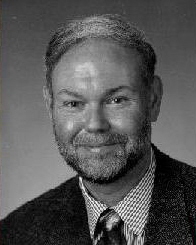 The eighth edition of the TGG Interview Series is with Max Blankfeld. Max is Vice-President of Marketing and Operations at Family Tree DNA, one of the largest genetic genealogy companies in the world. In addition, together with Bennett Greenspan, Max launched DNA Traits, a company that tests DNA for genetic diseases and inherited conditions. Max is a frequent contributor to genetic genealogy mailing lists and has answered many people’s questions about testing, results, an the field in general.
The eighth edition of the TGG Interview Series is with Max Blankfeld. Max is Vice-President of Marketing and Operations at Family Tree DNA, one of the largest genetic genealogy companies in the world. In addition, together with Bennett Greenspan, Max launched DNA Traits, a company that tests DNA for genetic diseases and inherited conditions. Max is a frequent contributor to genetic genealogy mailing lists and has answered many people’s questions about testing, results, an the field in general.
From the “About” page at Family Tree DNA:
“Originally from Brazil, received his BBA from Fundação Getulio Vargas, and MBA from Rice University. While his first college education was in the field of Aeronautical Engineering, he gave it up to become a foreign correspondent. After that, he started and managed several successful ventures in the area of public relations as well as consumer goods both in Brazil and the US.”

 Terry Barton is co-founder of
Terry Barton is co-founder of  If you’ve ever even thought about testing your own DNA for genealogical purposes, then you are almost guaranteed to have heard of
If you’ve ever even thought about testing your own DNA for genealogical purposes, then you are almost guaranteed to have heard of  Genetic genealogy has been commercially available since 2000, and in the last 8 years many genealogists have used this new tool to learn about their ancestry. Over the course of the next two weeks, I will be sharing interviews I recently conducted with 9 individuals who have had a huge impact on the field of genetic genealogy. The list includes – in the random order that their interview will appear – Bennett Greenspan, Megan Smolenyak Smolenyak, Terry Barton, Alastair Greenshields, Whit Athey, Ann Turner, Katherine Hope Borges, Max Blankfeld, and Ana Oquendo Pabón.
Genetic genealogy has been commercially available since 2000, and in the last 8 years many genealogists have used this new tool to learn about their ancestry. Over the course of the next two weeks, I will be sharing interviews I recently conducted with 9 individuals who have had a huge impact on the field of genetic genealogy. The list includes – in the random order that their interview will appear – Bennett Greenspan, Megan Smolenyak Smolenyak, Terry Barton, Alastair Greenshields, Whit Athey, Ann Turner, Katherine Hope Borges, Max Blankfeld, and Ana Oquendo Pabón.